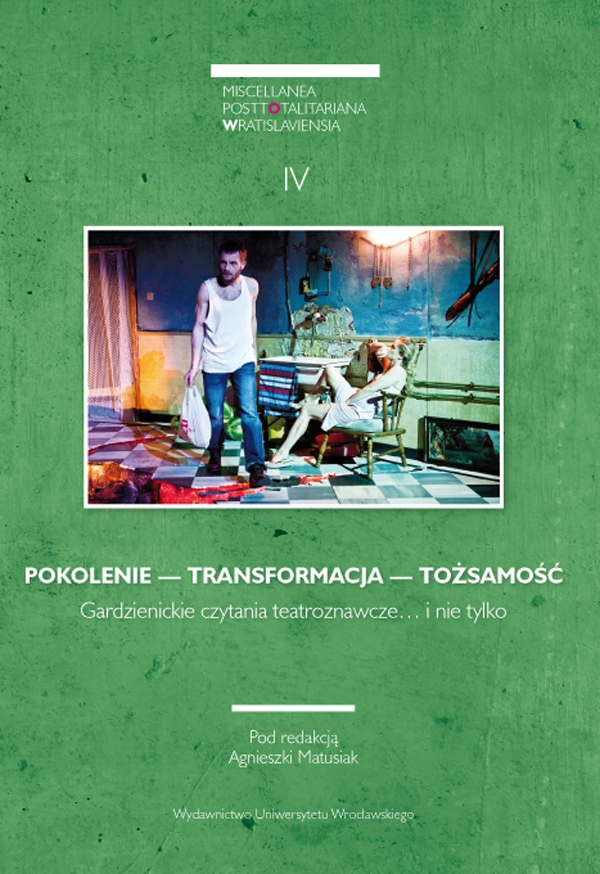

Artykuły

Backlash, or what are the makers of the new Czech drama afraid of.
In November 1989 various theater groups participated in overthrowing the totalitarian regime by improvising discussion forums. After the so-called Velvet Revolution, it was the writer and playwright Václav Havel who became head of state while another playwright, Milan Uhde, became the Minister of Culture and Speaker of the Parliament. Nowadays the Czech theater scene is immensely diversified. We can divide the authors who began writing their dramas after 1989 into two generational groups. On the one hand, there are authors born in 1960–1970, who entered the post-totalitarian times already as mature adults and who at the moment have long experience in their artistic work as playwrights, actors or directors it is quite common that those people write and direct their own work. On the other, there is a younger group which is made of people who were still children during the communist era, and their artistic activity was shaped and took place in most recent years. We are talking about a generation of artists who share a common experience of totalitarianism in childhood and adolescence, as well as the difficult transition between the two systems: communist and capitalist.
Backlash neboli čeho se bojí tvůrci nejnovější české dramaturgie. V listopadu 1989 se v České republice divadelní soubory pořádáním improvizovaných diskuzních fór účastnily svržení totalitního režimu. Po tzv. sametové revoluci stanul v čele státu spisovatel a dramaturg Václav Havel a další dramaturg, Milan Uhde, se stal ministrem kultury a předsedou Poslanecké sněmovny. V současnosti je česká divadelní scéna nesmírně rozrůzněná. Jména autorů, kteří začali svá umělecká díla psát po roce 1989, můžeme rozdělit do dvou generačních skupin. Na jedné straně máme autory narozené v letech 1960–1970, kteří do posttotalitních časů vstoupili už jako dospělí lidé a v současnosti za sebou mají většinou dlouholeté zkušenosti v umělecké práci, nebo v roli autorů dramat, herců případně režisérů často se jedná o osoby, které svoje kusy píší a zároveň režírují. Skupinu mladých umělců tvoří lidé divadla, kteří v době komunismu byli ještě dětmi, a jejich umělecká činnost se formuje a připadá na nedávná léta. Je tu řeč o generaci umělců, které spojuje společná zkušenost totalitarismu v dětství a raném mládí a také obtížný přechod mezi dvěma systémy: komunistickým a kapitalistickým.